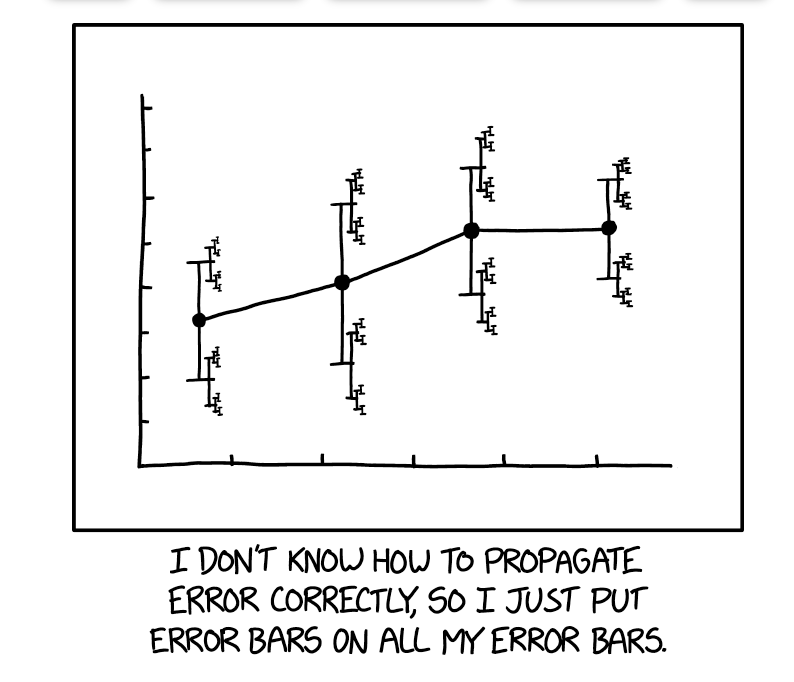Uncertainty
The comics in this post are thanks to the excellent xkcd, see them here and here.

Life is full of uncertainties. Ironically, this is probably one of the few things that we can truly be certain about. Uncertainty is a consequence of the fact that a) we don’t know everything and b) we can’t control everything.
As an ecological modeller, I think about uncertainty and it’s causes and consequences all the time. In fact, a big part of my job is quantifying uncertainty; for instance, how precise is our estimate of the relationship between temperature and species richness?
Last year, myself and collaborators spent a lot of time thinking about how mis-matches in the spatio-temporal resolution of data available to estimate ecological relationships, like the response of mangroves to sea-level rise, translate to forecast uncertainty. Sea-level rises at rates of millimeters per year. How can we model the future response of mangroves to this process when most digital elevation models have errors of up to +/- metres? It seemed an impossible task, especially at the global scale.
So, we opted to embrace uncertainty. We accepted that we would not be able to parameterise the processes in our global forecasting models with the accuracy and precision required to make quantitative forecasts of extent change.
Instead, we used probabilitsitc forecasts to identify where in the world we are certain mangroves will either persist or be lost in the future. This involved using simulation to randomly parameterise models representing the response of mangroves to interacting climatic and anthropogenic pressures, allowing us to calculate the future probability of mangrove net loss or gain.
We also cross-validated our model’s hindcasts across the entire global extent of mangroves, allowing us to propagate prediction error as uncertainty in the number of forests forecast to either persist or be lost in the future.
If you’re keen to check out our approach and decide what you think for yourself, see the pre-print here.

Citation
@online{buelow2024,
author = {Buelow, Christina},
title = {Uncertainty},
pages = {undefined},
date = {2024-02-11},
url = {https://cabuelow.github.io/personal-website/posts/2024-02-11-new-preprint/},
langid = {en}
}